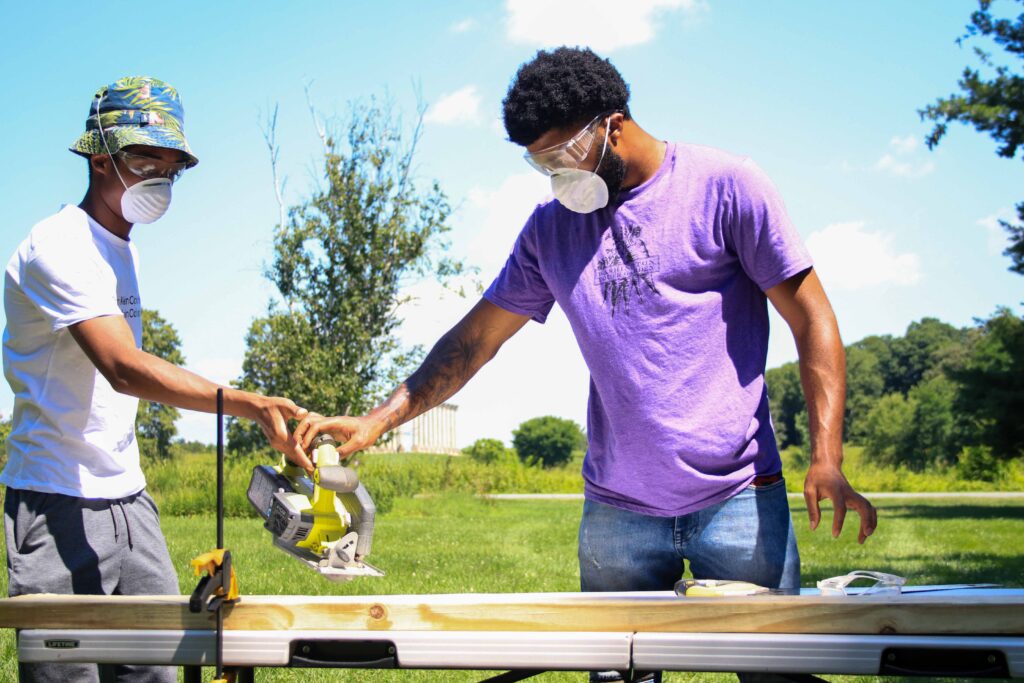SCHOOL GARDEN SUPPORT PROGRAM
OVERVIEW
The School Garden Support Program works with educators across DC to build strong, sustainable school garden programs. Our program empowers teachers to connect students to garden-based education through field trips in Washington Youth Garden, in person and virtual classroom support, and professional development opportunities for DC educators.
Our vision is for school gardens and healthy, local food to be a fundamental part of each school, led by the school community, and integrated into a school’s culture and learning environment.
Sign up to receive School Garden Gateway
Get resources and event info from FONA's Washington Youth Garden education programs in your inbox.
By submitting this form, you are consenting to receive marketing emails from: Friends of the National Arboretum. You can revoke your consent to receive emails at any time by using the SafeUnsubscribe® link, found at the bottom of every email. Emails are serviced by Constant Contact
FIELD TRIPS
Science Program Reaching OUT (SPROUT) field trips are FONA’s school year field trip program that invites your class to our one-acre demonstration garden.
Field trips are available on Tuesday and Wednesday mornings, and Friday mornings and afternoons from April 8 through June 13, 2025. As of March 31st, there are a limited number of field trip spots still available. Please submit a spring field trip reservation request.
For all other field trip related questions, please reach out to education@fona.org.
SPROUT visits to the Washington Youth Garden are 90 minutes long and begin with a brief staff-led orientation. You and your students then have time to explore the garden and Nature Explore Classroom on your own and visit our garden activity stations.
Our staff are there to lead activity stations, offer suggestions, and answer questions, but this is truly a time for your students and chaperones to explore the garden and follow their curiosity (or their taste buds). Picnic tables and a tent are available before or after your visit for snack or lunch time as needed (plan on bringing your own).
Field trips to the Washington Youth Garden typically cost around $300-400 to run, plus the cost of transportation. Field trips are free for DC Title 1 schools. A suggested fee is encouraged for all others so that we can continue to provide these services. The suggested fee is based on the percentage of students eligible for Free or Reduced Price meals (FRP). Per trip pricing is as follows:
- 10-25 students: $200 ($100 for Title 1 schools or +40% students eligible for FRP)
- 26-42 students: $400 ($200 for Title 1 schools or +40% students eligible for FRP)
You may pay by check to: Friends of the National Arboretum, 3501 New York Ave. NE, Washington, DC 20002 (please put SPROUT in the memo or invoice).
Email education@fona.org for alternative ways to pay.
We hope to see you in the garden soon!
Public transportation to the U.S. National Arboretum is challenging at the best of times, and the Washington Youth Garden is another ¾ mile from the nearest gate. We strongly recommend you book a bus for your visit. Many field trip cancellations happen because bus transportation was not secured in time, and that often means we cannot rebook that date. As such, we will ask you to finalize your bus reservation no later than one month before your field trip.
Occasionally, we have additional funding to support bus transportation. Please let us know in your reservation form if you require transportation funding for this trip.
We do not offer structured field trips during the summer months, but please reach out to education@fona.org if you have any questions, or are thinking of bringing a group out to the Arboretum or Washington Youth Garden in the summer.
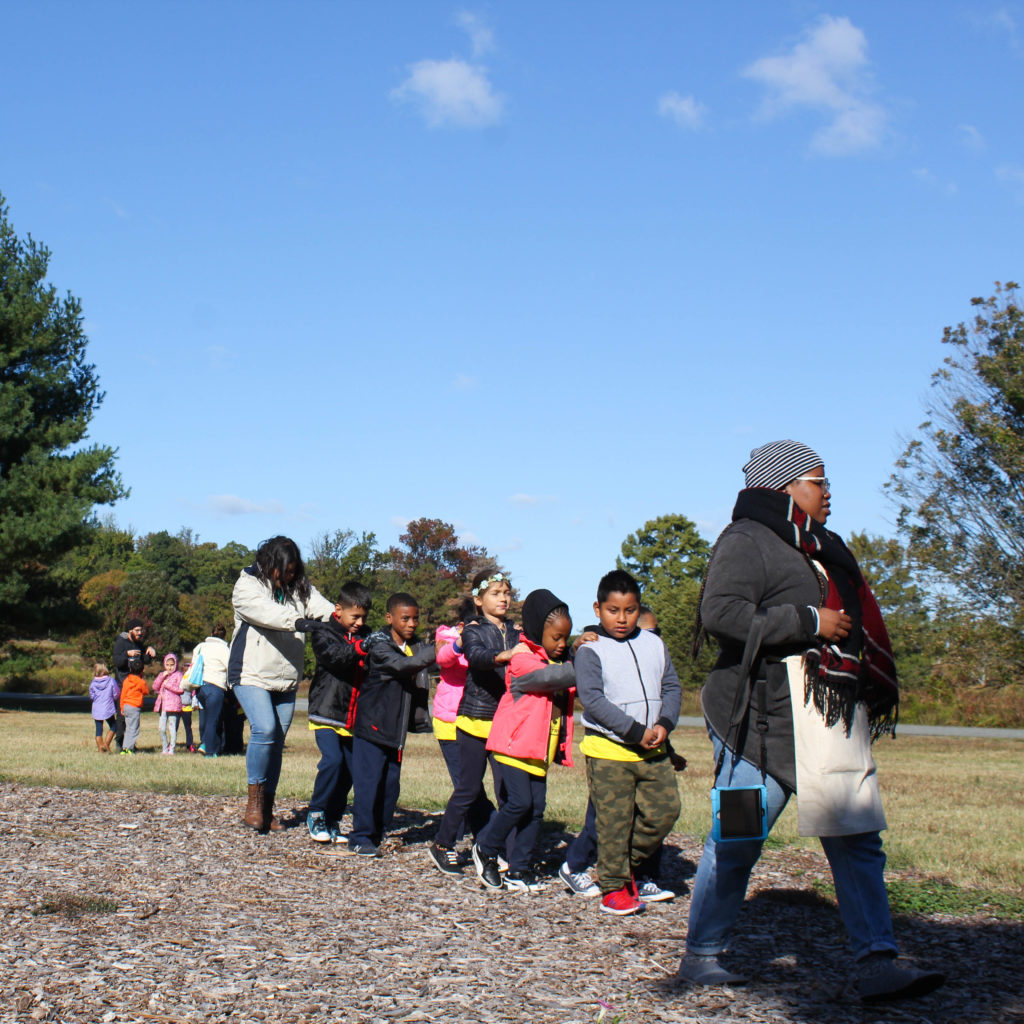
CLASSROOM SUPPORT
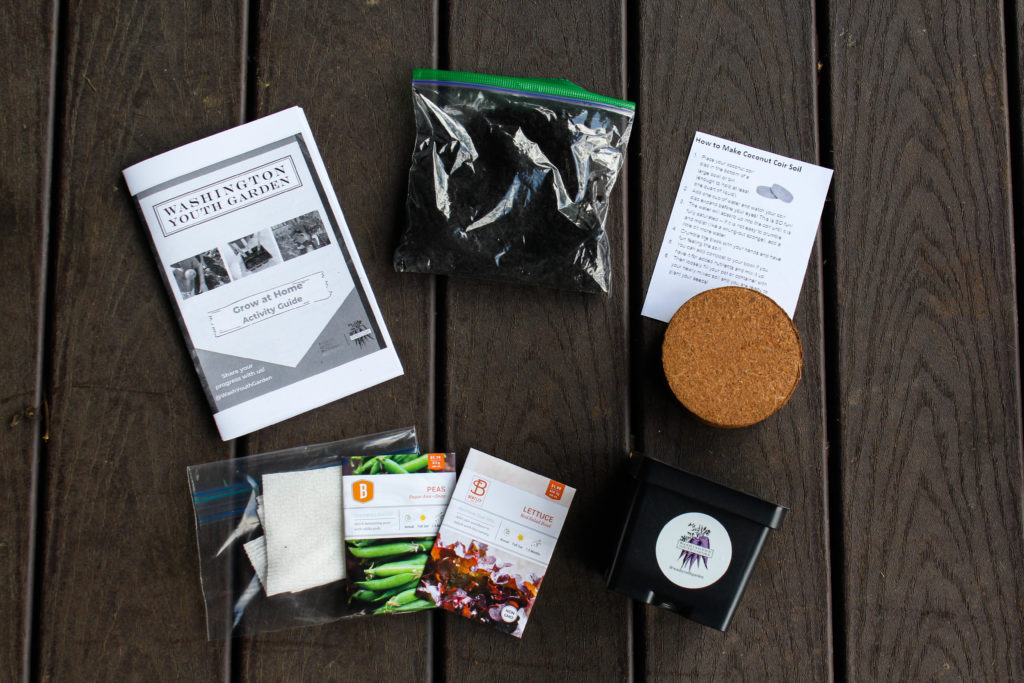
Grow@Home Kits
These kits include an activity guide that allows students to practice the scientific method, run their own experiments, and create nutritious meals from what they grow.
Setting Up Your Kit
Watering Your Plants
How the Kits are Made
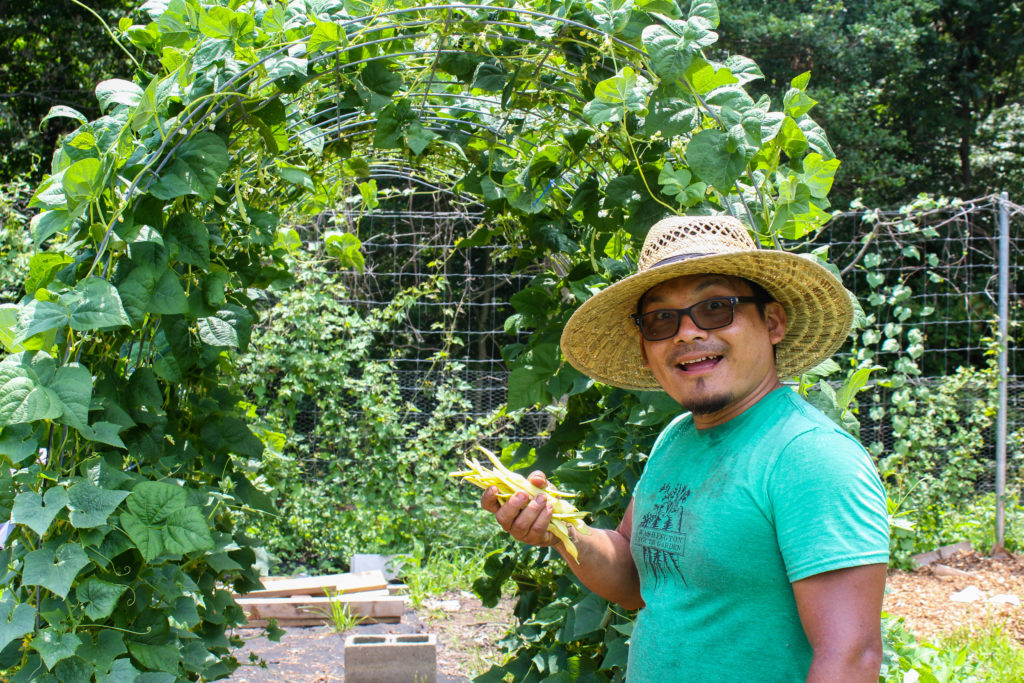
Virtual Farm Field Trips
Join farms and gardens across DC to get inspired, learn something new, and get ideas to explore your own garden or neighborhood!
Washington Youth Garden — Garden Tour
Farmer Jake introduces all the spaces in the Washington Youth Garden demonstration garden.
Washington Youth Garden — Starting Seeds
Farmer Emilia gives a tour of our greenhouse at the U.S. National Arboretum.
Washington Youth Garden — Sensory Garden
Follow Farmer Emilia around the WYG sensory garden and explore your senses in our garden and at your home.
Washington Youth Garden — Plant Part Salad
Ms. Allie identifies the 6 essential parts of a plant and uses them to make a salad.
City Blossoms — Super Plants
Ms. Lauren introduces you to the Marion Street Neighborhood Garden while you explore how the parts of a plant help the plant grow.
City Blossoms — Plant ID
Ms. Lauren teachers young gardeners how to identify local families of plants and play a game of “Does it grow here?”
City Blossoms — Herb ID
Ms. Kendra explains how to smell and safely pick garden herbs, before introducing favorite garden herbs.
City Blossoms — Ecosystem Exploration
Explore Marion St. Garden’s ecosystem with Ms. Lauren! Learn about decomposers, producers, and consumers.
Common Good City Farm — Farm Tour
Emily shares about Common Good City Farm and introduces you to the space.
Common Good City Farm — Pollination
Learn about pollination, and what the role of different bees are in the beehive.
Common Good City Farm — Farm Tools
Farmer Bodhi explains commonly used farm tools and how we use them to get our work done.
Common Good City Farm — Orchard Tour
Walk through the orchard and learn about the persimmon, fig, peach, cherry, apple, pear and paw paw trees that grow at Common Good.
Common Good City Farm — Compost
Nate gives a tour of a compost bin system.
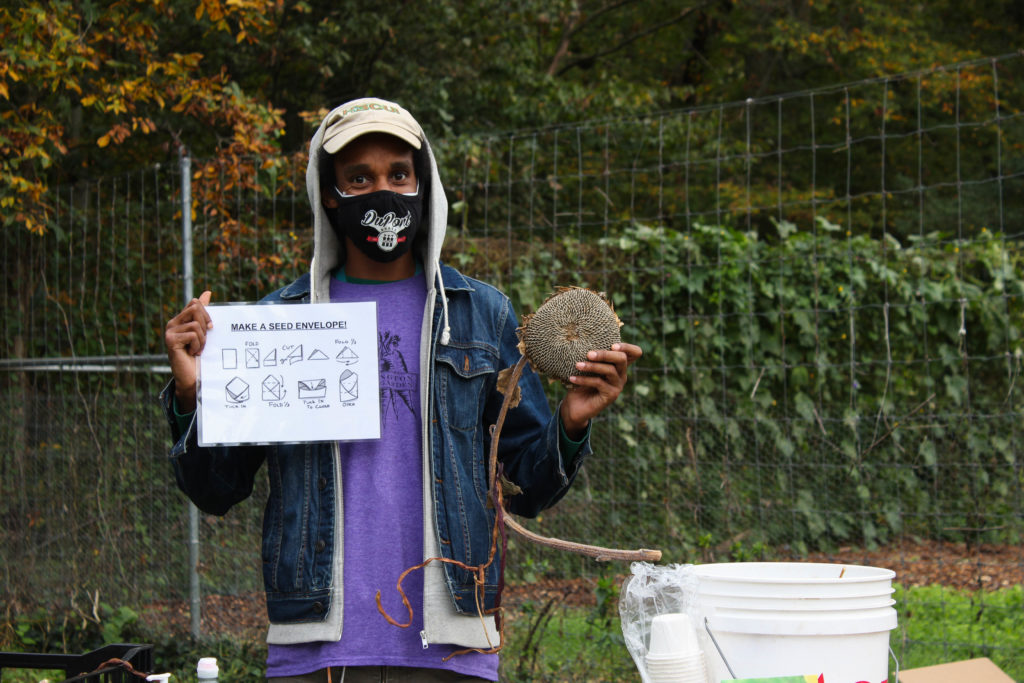
Digital Resources
Online garden science and outdoor learning resources for all ages from FONA and other organizations, as well as garden resources to help you start or improve your garden.
FROM FONA
PRE KINDERGARTEN
MY 5 SENSES
A lesson that focuses on using hands-on experiences to introduce the 5 senses.
KINDERGARTEN – 2ND GRADE
PARTS OF A PLANT ACTIVITY
An activity guide to pair with our Parts of a Plant Farm Field Trip video.
POPCORN & SEED SORTING
Use the seed sorting chart to sort through any seeds you have in your house (like that 7 bean soup mix). Then taste test seeds by making homemade popcorn.
COOKING WORKSHOP ACTIVITY GUIDE
Check out a couple of recipes and activities from our Cooking Workshop Curriculum, including veggie stir fry and quick pickles.
FROM OTHER ORGANIZATIONS
COOKING
FOODPRINTS ANYWHERE
FoodPrints activities that build nutrition knowledge, extend science and math education, and help families cook and eat healthy recipes at home.
SLOW FOOD LIVE
A variety of sessions live and recorded to watch and learn at home, including Food & Cooking, Gardening & Animals, Health & Wellness, and Change-Making.
YMCA DC FOOD VIRTUAL KITCHEN
Geared toward adults, watch short videos to learn chef skills and delicious recipes.
FOODCORPS REMOTE LEARNING LESSONS
35 hands-on lessons to do with kids 5-11 years old.
GARDENING
BACK POCKET LEARNING
Easy to do activities that every garden educator or parent should have in their “Back Pocket”. Curated by lifelab.org.
KIDSGARDENING.ORG
10 go-to gardening activities with kids.
CHICAGO BOTANIC GARDEN
Simple radish experiments to explore at home and learn about experimentation.
CITY BLOSSOMS
Compiled list of nature-based activities and healthy cooking, adapted for at home use.
OUTDOOR ACTIVITIES
THE ECOLOGY SCHOOL
Nature Nuggets: short snippets to build nature connection near home.
JOURNEY NORTH
Great activities to follow the migration of animal species that pass through your neighborhood.
GREEN SCHOOLYARDS
Great outdoor art, math and exploration activities. Updated in March and April with regular highlights from their curriculum.
OXBOW FARM & CONSERVATION CENTER
We especially love the build a worm bin at home and the nature journaling prompts activity guide!
TINKERGARTEN
Seasonal outdoor activities for all ages.
HOW TO PLANT
WHEN TO PLANT
WHAT TO PLANT
PROFESSIONAL DEVELOPMENT
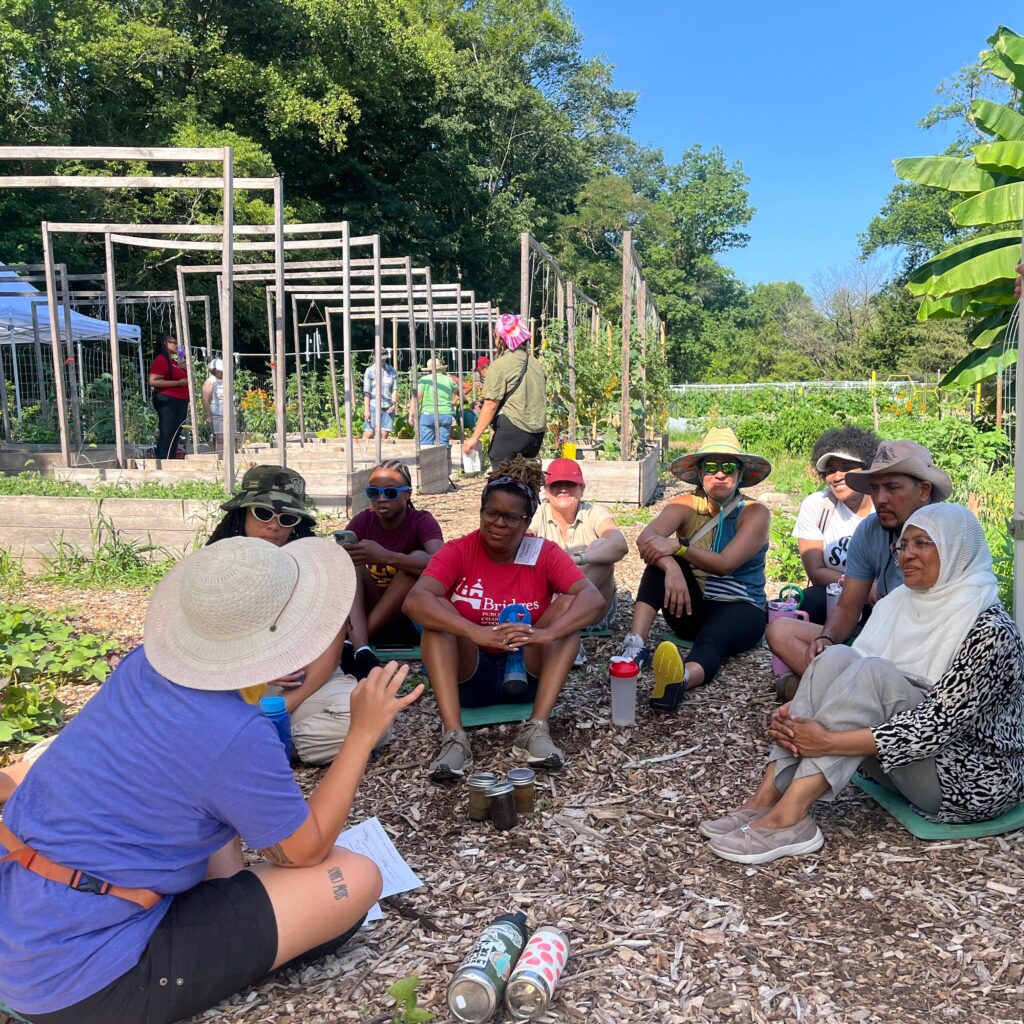
Summer Institute for Garden-based Teaching (SIGbT)
The Summer Institute for Garden-based Teaching is a four-day long professional development course. This training inspires and connects teachers and school staff to more fully integrate their school garden into their daily educational activities.
Eligible participants:
- Are from District of Columbia schools that have an existing school garden program
- Apply with at least one other school team member*
- Are committed to attend all of the sessions
All participants receive a stipend. Stipend amounts contingent upon finalized funding.
The course includes in-person activities at the Washington Youth Garden and the National Arboretum’s auditorium and classroom, DC school garden tours, and workshops led by FONA staff, partner organizations, and program alumni.
*Schools that send at least two team members will be eligible for a materials stipend to support their school garden program.
What is Your Why: School Gardens with Purpose
This webinar will provide tools and processes to think through what you want to achieve with your teaching garden, and how that can inform what your garden looks like. You will see examples from three school gardens: Turner Elementary School, DC Bilingual PCS, and KIPP PCS-Webb Campus. You will also learn about the research and evidence that grounds school gardens in best practices.
Designing Your Garden Team
This webinar will provide information on designing your school garden and building out your team. You will learn about the key features of school gardens, and see examples from different schools. We’ll also dive into connecting with school garden champions, both within your school staff, families, and the broader community.
Gardening Basics
This webinar provides garden skills for educators to feel confident teaching in the school garden. This is not a master gardener discussion. Instead, this webinar focuses on tips and tricks specific to school garden spaces.
Outdoor Group Management
This webinar will take garden design and put it into action, including how to bring a group of students out into your garden space for maximum learning and fun.
Teaching in the Garden
This webinar session will focus on how teachers can incorporate fun, engaging, standards-based lessons while teaching in the school garden. Learn about how you can incorporate food and garden-based lessons in your classroom, both virtually, and in person.
Sign up for our School Garden Gateway email newsletter to receive notification for when the 2025 Summer Institute registration opens.
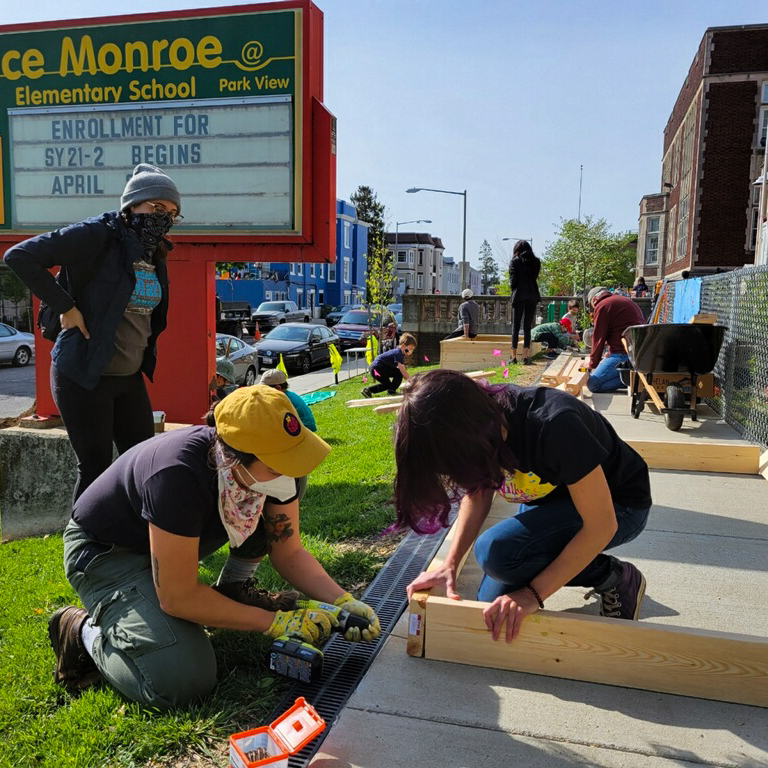
Educator Coaching Program (ECP)
The Educator Coaching Program supports schools by building the connection between health and learning through interdisciplinary garden-based education. Our vision is for school gardens and healthy, local food to be a fundamental part of each school, led by the school community, and integrated into their school’s culture and learning environment.
Educators who have participated in the Summer Institute for Garden-based Teaching are eligible to apply with their school garden team to participate in the Educator Coaching Program.
Each school garden team must:
- Be a D.C. Title I school, serving low-income families
- Have someone that has previously completed the Summer Institute for Garden-based Teaching previously (between 2022-2024)
- Have at least one other person at your school who can participate in quarterly meetings to identify and execute key goals for garden-based education specific to your school and community
- Have administrative support (through email or letter of support)
Here are a few sample garden goals we can help garden teams achieve:
- Increasing teacher and staff involvement (e.g. more teachers doing garden-based teaching)
- Greater Community Engagement (e.g. families, volunteers, partners)
- Increasing admin involvement and buy-in
- Improving Food Access / Produce Distribution
- Improving Garden Coordination and Organization (e.g. creating map, task list, scheduling)
- Garden Maintenance (e.g. garden workdays, garden coaching)
- Garden Development (e.g. physical infrastructure, adding bees or compost)
- Finding Funding (e.g. grant writing)
July: Summer Institute for Garden-based Teaching
August: Educator Coaching Program application & selection
September: ECP launches, school garden teams set goals for the year
October – May: FONA hosts monthly meetings and supports teams in achieving school garden goals
June: End of year celebration & reflection
Registration for the Educator Coaching Program is only open to educators who have participated in the Summer Institute for Garden-based teaching. Registration opens in July and August of each year for the upcoming school year.
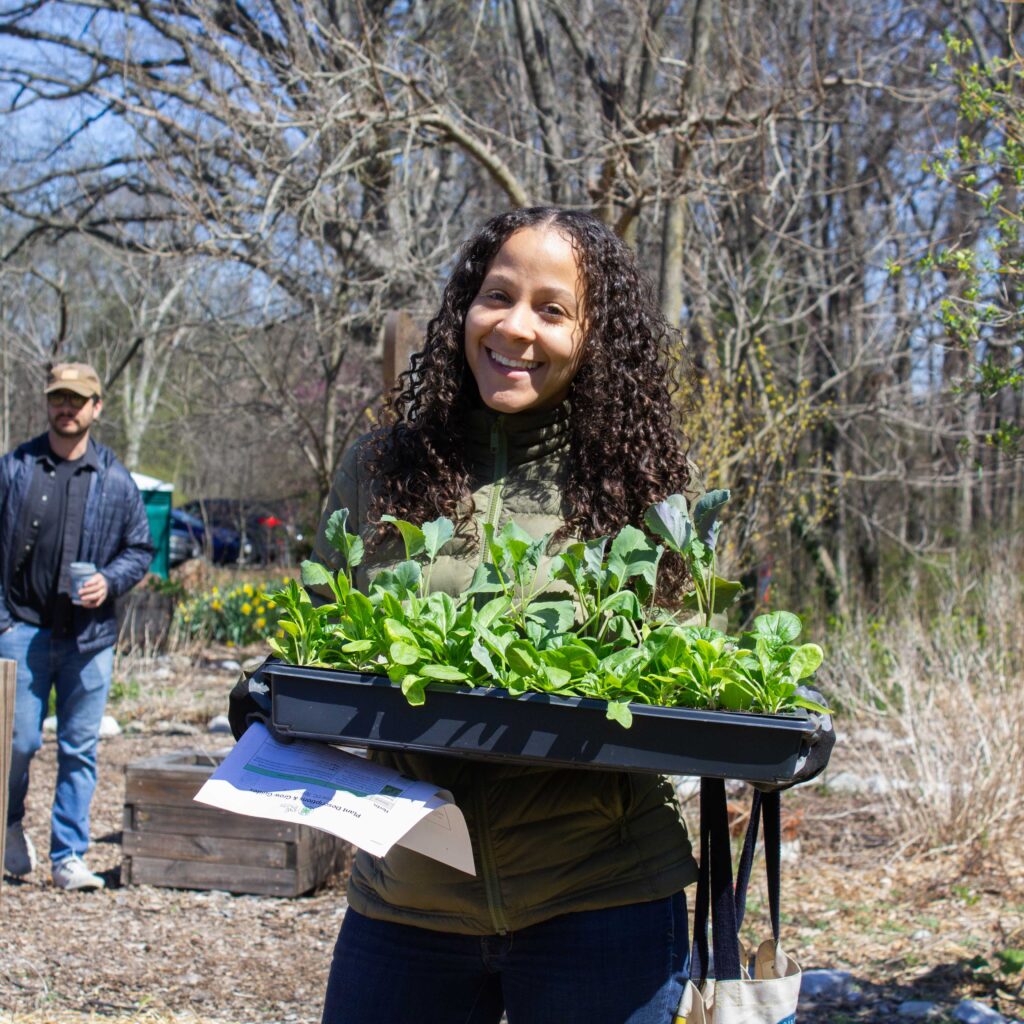
Seasonal Garden Trainings
We host two seasonal garden trainings throughout the school year in the Washington Youth Garden. These events are free and open to all DC educators, and offer free garden supplies, training, and a chance to network. Supplies often include straw mulch, compost, seeds, and seedlings. Some supplies are reserved for DC schools with limited capacity and budget for garden programming.
Spring into School Gardening is often held in late March, and Fall into School Gardening is often held in early September. Check our program and event calendar for the official dates of upcoming trainings.
“Thank you for giving me the confidence to take on our school garden! We’ve been using it weekly with our kindergarteners.”
— Teacher at Turner Elementary School
Sign up to receive School Garden Gateway
Get resources and event info from FONA's Washington Youth Garden education programs in your inbox.
By submitting this form, you are consenting to receive marketing emails from: Friends of the National Arboretum. You can revoke your consent to receive emails at any time by using the SafeUnsubscribe® link, found at the bottom of every email. Emails are serviced by Constant Contact
OTHER EDUCATION PROGRAMS
FONA hosts many other education programs at the Washington Youth Garden and in partner schools across Washington, DC.
The Washington Youth Garden is a welcoming and inviting place for the DC community to learn and grow together. WYG’s sensory garden, innovative growing techniques, and nature-explore classroom encourage visitors of all ages to engage with agriculture, farming, and environmental education.
The Green Ambassador Program provides year-round employment and development opportunities for DC high school students. Youth enter the program in the Farm Crew and progress to become Crew Leaders, staff, and alumni.
